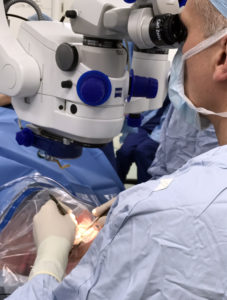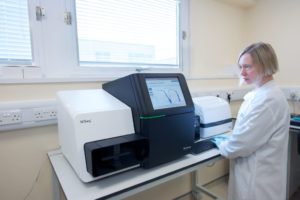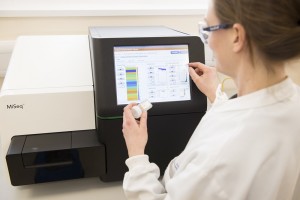An Oxford-based international online project to tackle antibiotic resistance has picked up a national health research award. BashTheBug, an initiative funded by the National Institute for Health Research (NIHR) Oxford Biomedical Research Centre (BRC), brings together volunteers from all over the ... READ MORE
News for Modernising Medical Microbiology and Big Infection Diagnostics
Pregnant women to help test vaccine against childhood virus
Pregnant women receiving antenatal care in the Women’s Centre at Oxford’s John Radcliffe Hospital (JR) may be asked to take part in a world-first clinical trial to find a vaccine against a common and potentially serious viral infection in babies. Women are being asked if they would like to take ... READ MORE
Drop ‘complete the course’ message for antibiotics, experts say
Oxford researchers are among a group of infectious disease experts to argue that the advice that patients should complete a course of antibiotics is not supported by evidence and should be dropped. In a paper published on Thursday by the BMJ, the authors, who include National Institute for Health ... READ MORE
Public invited to help tackle antibiotic resistance
An online project has been launched to study antibiotic resistance in Tuberculosis (TB) with the help of the public. The project website, bashthebug.net, shows volunteers images of a series of small, circular wells, each containing M.tuberculosis (the bug that causes TB) and a different dose of ... READ MORE
England world leaders in the use of Whole Genome Sequencing to diagnose TB
In a world-first, Whole Genome Sequencing (WGS) is now being used to identify different strains of tuberculosis, announced Public Health England today. This is the first time that WGS has been used as a diagnostic solution for managing a disease on this scale anywhere in the world. This builds on ... READ MORE
New trial for blindness rewrites the genetic code
Researchers have started a new gene therapy clinical trial to treat X-linked retinitis pigmentosa (XLRP), the most common cause of blindness in young people. Retinitis pigmentosa is currently untreatable and leads to a slow and irreversible loss of vision. On 16 March 2017, a 29-year-old British ... READ MORE
Genetic sequencing offers same-day TB testing
Researchers have for the first time shown that standard tuberculosis (TB) diagnostic tests can be replaced by a sub-24 hour genetic test applied to the TB bacteria in a patient’s sputum. It currently takes up to two months to obtain the full diagnostic information for a patient with TB, as the ... READ MORE
Antibiotics, not dirty hospitals, the main cause of C. difficile epidemic
Restricting the use of a common antibiotic was more important than a high profile “deep clean” of hospitals in massively reducing UK antibiotic resistant Clostridium difficile (C. diff) cases, a major new study has found. The study concluded that overuse of antibiotics like ciprofloxacin led to ... READ MORE
Faster TB results from BRC-backed research
Whole Genome Sequencing is a faster, cheaper and more effective way of diagnosing tuberculosis, according to a new study published in the journal Lancet Respiratory Medicine. Dr Louise Pankhurst of the University of Oxford and a team of worldwide collaborators including Public Health England ... READ MORE
Watch talk on antibiotic resistance
A public talk on the increasing prevalence of antimicrobial-resistant bacteria in hospitals and the community is now available to view online. Prof Angela Brueggemann spoke as part of a series of talks about research supported by the NIHR Oxford Biomedical Research Centre. Angela ... READ MORE
New TB test to get sufferers on right drugs sooner
Tuberculosis sufferers will be able get drug treatment sooner thanks to a new whole genome sequencing technique to determine for the first time which drugs to give sufferers, researchers in Oxford have reported. University of Oxford researchers at the John Radcliffe Hospital have developed a ... READ MORE
Restricting antibiotics could be key to fighting “superbug”
NEW WAYS are needed to fight the infection Clostridium difficile and better use of antibiotics could be key, according to the authors of ground breaking research. In a unique study supported by the National Institute for Health Research (NIHR) Oxford Biomedical Research Centre, the team mapped all ... READ MORE
TB’s genetic “family tree” may hold the key to tackling outbreaks quickly and effectively
NEW genetic sequencing techniques can map the “family tree” of a Tuberculosis (TB) outbreak allowing the spread of disease to be tackled quickly and effectively. Researchers, led by the NIHR Oxford Biomedical Research Centre, the Health Protection Agency in Birmingham and the Wellcome Trust ... READ MORE
High speed bench-top sequencing set to change the face of infection control
A study published today in BMJ Open, by researchers from Oxford, Leeds, Brighton and the Health Protection Agency, highlights the use of new bench-top DNA sequencers to quickly and cheaply unravel the entire genetic codes of bacteria causing life-threatening infections. This technology has the ... READ MORE
Genetic changes tracked as bacteria become a fatal infection
An unusual case could tell researchers more about the genetic changes that occur when a common bacteria, normally carried without any problems, on rare occasions causes potentially life-threatening infections. Eight mutations occurred in the common bacteria Staphylococcus aureus as it turned from ... READ MORE
Oxford research sheds new light on Clostridium difficile infection in hospitals
It has been a widely held belief that most C. difficile infections are spread in hospital from a case with active disease to other patients. A recent study, funded by the National Institute of Health Research, in Oxford and Leeds however shows that the vast majority of C. difficile cases in ... READ MORE
How has the pneumococcus bacteria evolved after the introduction of a childhood vaccine?
Researchers from the University of Oxford and the US Centers for Disease Control and Prevention (CDC) used the latest DNA sequencing techniques to investigate how pneumococcus bacteria evolved after the introduction of a childhood vaccine in 2000 in the USA. Streptococcus pneumoniae infections ... READ MORE
New two-drug approach to treat type of respiratory disease
A therapy combining two existing drugs could provide an effective new approach for treating patients with pleural infections, a serious condition where infected fluid builds up in the space between the ribs and lungs. A randomised clinical trial conducted by Oxford University researchers in the ... READ MORE
What can be done about the rising risk of antibiotic resistance?
On December 11th 1945, at the end of his Nobel lecture, Alexander Fleming sounded a warning. Fleming’s chance observation of the antibiotic effects of a mould called Penicillium on one of his bacterial cultures had inspired his co-laureates, Howard Florey and Ernst Chain, two researchers based in ... READ MORE
Oxford group awarded millions to boost infection research
An Oxford group has today been chosen as one of two major consortia dedicated to research into healthcare associated infections and antibiotic resistance. The Oxford consortium comprises the Oxford Biomedical Research Centre (a partnership between the Oxford Radcliffe Hospitals and the University ... READ MORE






